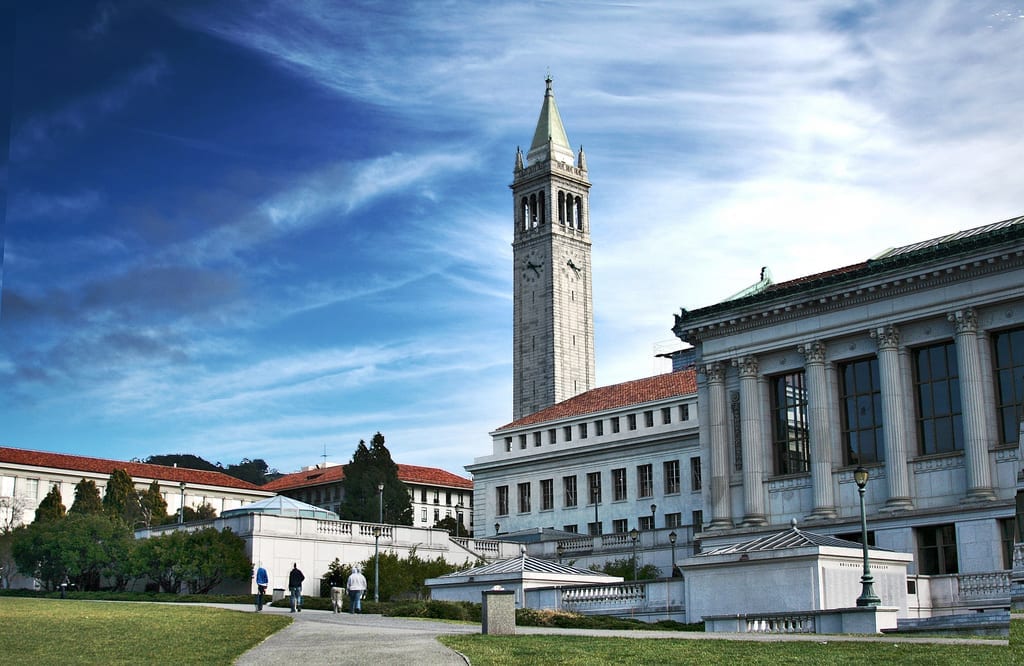Earlier this month, UC Berkeley announced that it agreed to settle a lawsuit filed against the school involving allegations of discrimination “against high-profile speakers invited by conservative student groups.” The suit was filed back in April 2017 by Young America’s Foundation (YAF) and Berkeley College Republicans (BCR) and alleged that the university violated their First Amendment rights, among others. According to the settlement agreement, the university will pay “a one-time $70,000 payment to cover the plaintiff’s attorney costs, as well as a revision of the campus Major Events Policy.”
Earlier this month, UC Berkeley announced that it agreed to settle a lawsuit filed against the school involving allegations of discrimination “against high-profile speakers invited by conservative student groups.” The suit was filed back in April 2017 by Young America’s Foundation (YAF) and Berkeley College Republicans (BCR) and alleged that the university violated their First Amendment rights, among others. According to the settlement agreement, the university will pay “a one-time $70,000 payment to cover the plaintiff’s attorney costs, as well as a revision of the campus Major Events Policy.”
What happened, though? How was YAF and the Berkeley College Republicans discriminated against? It began back in the spring of 2017 when YAF and BCR invited Milo Yiannopoulos, Ann Coulter and David Horowitz to campus on separate occasions. All three times, the university canceled the events, prompting the BCR and YAF to sue the university over its speaker policies. According to the initial complaint, the policies “constituted a discriminatory imposition of curfew and venue restrictions and violated the constitution by imposing an unconstitutionally vague policy on high-profile speakers.”

Unfortunately for YAF and BCR, a federal judge initially “upheld the constitutionality of UC Berkeley’s event policy.” However, BCR and YAF were “allowed to amend their complaint,” and after UC’s requests for dismissal were declined, the plaintiffs and the university agreed to settle the lawsuit.
As part of the settlement agreement, some of the university’s policies are being redefined. For example, going forward, “‘major events’ are now defined as any organized event that draws more than 300 people, significantly affects campus security, interferes with campus functions or serves alcohol, among other specified conditions.” Additionally, the university also agreed to “amend its security fee schedule for events planned for classrooms or ASUC Student Union venues to standardize UCPD security costs.” However, the “process for determining UCPD security costs for student organizations such as YAF and BCR will, however, remain unchanged,” according to a statement from the university.
Nevertheless, Harmeet Dhillon, an attorney for YAF and BCR, is heralding the agreement as a landmark settlement and said:
“This landmark settlement means that all students at UC Berkeley now have the exciting opportunity to hear a variety of viewpoints on campus without the artificial tax of security fees selectively imposed on disfavored speech.”
YAF welcomed the agreement as well and said that “transparency and accountability have now replaced a notoriously murky policy.”
UC Berkeley spokesperson Dan Mogulof also commented on the recent agreement and said the “settlement does not require the University to concede that any of the plaintiffs’ claims of previous viewpoint discrimination have any basis in fact, for they did not…The settlement agreement confirms that any and all efforts by plaintiffs to prove viewpoint discrimination by the campus have been abandoned.” He added:
“Compensation for attorney costs constitutes a fraction of the attorney’s fees amassed in the process of litigation and is less than the cost incurred had the university further pursued the case in court…Given that this outcome is all but indistinguishable from what a courtroom victory would have looked like, we see this as the least expensive path to successful resolution of this lawsuit. While we regret the time, effort and resources that have been expended successfully defending the constitutionality of UC Berkeley’s event policy, this settlement means the campus will not need to spend hundreds of thousands of dollars in unrecoverable defense costs to prove that UC Berkeley has never discriminated on the basis of viewpoint.”
Sources:
UC Berkeley to settle free speech lawsuit with conservative groups


Join the conversation!